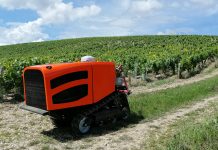Innovation News Network brings you the latest research and innovation news from the fields of science, environment, energy, critical raw materials, technology, and electric vehicles.
Detecting the heartbeat of a supermassive black hole
Evidence from the first confirmed heartbeat of a supermassive black hole is still detectable, over ten years since its first discovery.
After years of its...
Could 2021 be the beginning of a new era of sustainable shipping?
Shipping can have a devastating impact on the environment, however new innovative technologies could spur on a new era of sustainable shipping.
Throughout the last...
Spider silk-based biomaterials: fostering innovation in countless industries
The development of the large-scale biotechnological production of spider silk proteins in the last two decades has enabled new applications biomaterials.
Spiders have evolved silks...
Bringing graphene to the European market with Graphene Flagship
Kari Hjelt, Head of Innovation of the Graphene Flagship explains how graphene holds the potential to shift entire industries and spur on a new...
Canadian hempcrete: the development of the hemp construction industry
Gabriel Gauthier, Director and Developer at ArtCan, explains the key features of the hemp construction industry and the benefits of using hempcrete.
ArtCan and Gabriel...
Strengthening digital infrastructure and data sovereignty in Europe
A new report, published by EIT Digital, provides a scenario-based framework for the development of digital infrastructure and data policy instruments to strengthen European...
Scientists reprogramme ancient enzyme for sustainable biotechnology
A team of researchers led by Uppsala University, Sweden, have resurrected and reprogrammed an ancient enzyme that can be used to develop sustainable biotechnologies.
The...
Why isn’t there more agricultural robots in our fields?
AgreenCulture discuss their work developing agricultural robotics solutions to promote the adoption of modern precision farming in Europe.
In the last 60 years, the worlds...
Research suggest airborne dust can increase a planet’s ‘habitable zone’
Scientists from the University of Exeter have suggested that the presence of airborne dust on planets could expand the range of their stars’ ‘habitable...
Innovation in space: the private sector’s role in the 2020 space race
As the industry becomes more commercialised, funding for the space sector is set to increase – could this be the start of a new...











